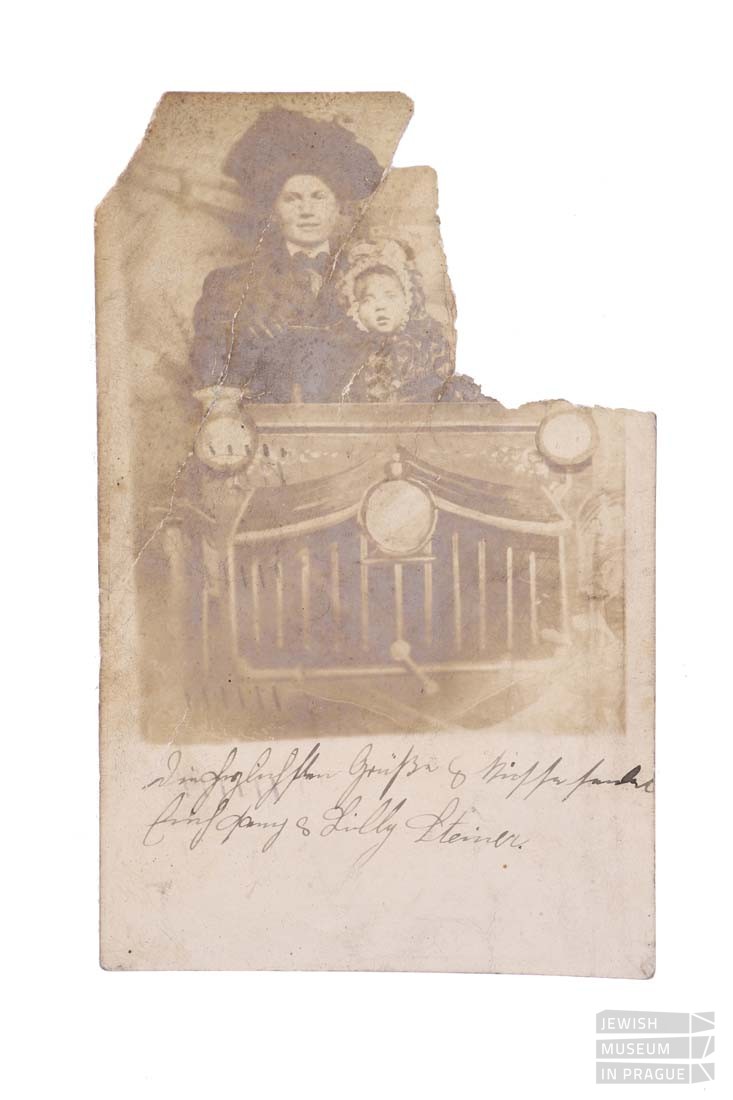
A photographic postcard of a woman with child in a studio prop car. It is probably a depiction of Fany and Lilly Steiner. The title “Post Card” is pre-printed on the back, but the written address is no longer legible. The postmark is Chicago III and the date is 10 February 1908.

The map shows the location of all the sites where the genizah items in the collections of the Jewish Museum in Prague were discovered (finds from other sites, such as Ivančice and Pacov, are not in the museum’s collections). Representative genizah items from each location are gradually being added to the museum’s website. Complete sets of genizah items can be found in the museum’s catalogue at collections.jewishmuseum.cz.